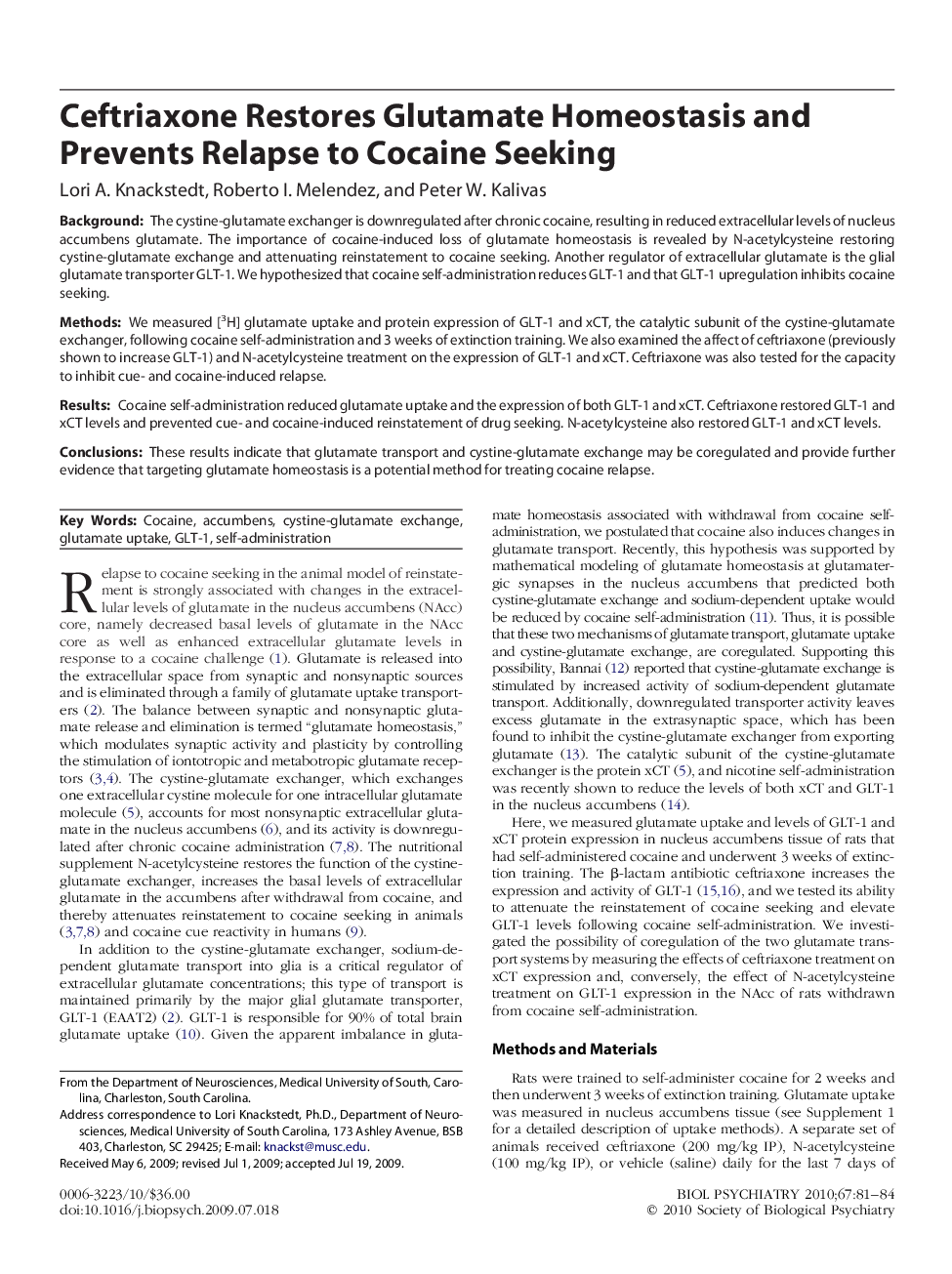| Article ID | Journal | Published Year | Pages | File Type |
|---|---|---|---|---|
| 4180261 | Biological Psychiatry | 2010 | 4 Pages |
BackgroundThe cystine-glutamate exchanger is downregulated after chronic cocaine, resulting in reduced extracellular levels of nucleus accumbens glutamate. The importance of cocaine-induced loss of glutamate homeostasis is revealed by N-acetylcysteine restoring cystine-glutamate exchange and attenuating reinstatement to cocaine seeking. Another regulator of extracellular glutamate is the glial glutamate transporter GLT-1. We hypothesized that cocaine self-administration reduces GLT-1 and that GLT-1 upregulation inhibits cocaine seeking.MethodsWe measured [3H] glutamate uptake and protein expression of GLT-1 and xCT, the catalytic subunit of the cystine-glutamate exchanger, following cocaine self-administration and 3 weeks of extinction training. We also examined the affect of ceftriaxone (previously shown to increase GLT-1) and N-acetylcysteine treatment on the expression of GLT-1 and xCT. Ceftriaxone was also tested for the capacity to inhibit cue- and cocaine-induced relapse.ResultsCocaine self-administration reduced glutamate uptake and the expression of both GLT-1 and xCT. Ceftriaxone restored GLT-1 and xCT levels and prevented cue- and cocaine-induced reinstatement of drug seeking. N-acetylcysteine also restored GLT-1 and xCT levels.ConclusionsThese results indicate that glutamate transport and cystine-glutamate exchange may be coregulated and provide further evidence that targeting glutamate homeostasis is a potential method for treating cocaine relapse.
